A Taste of the Old Days with Cambridge-Based U.S. Open Cup Hopefuls CD Faialense
We sat down for a chat and a meal with the amateurs of Boston-area CD Faialense – who’ve reached our Final Qualifying Round for a second successive year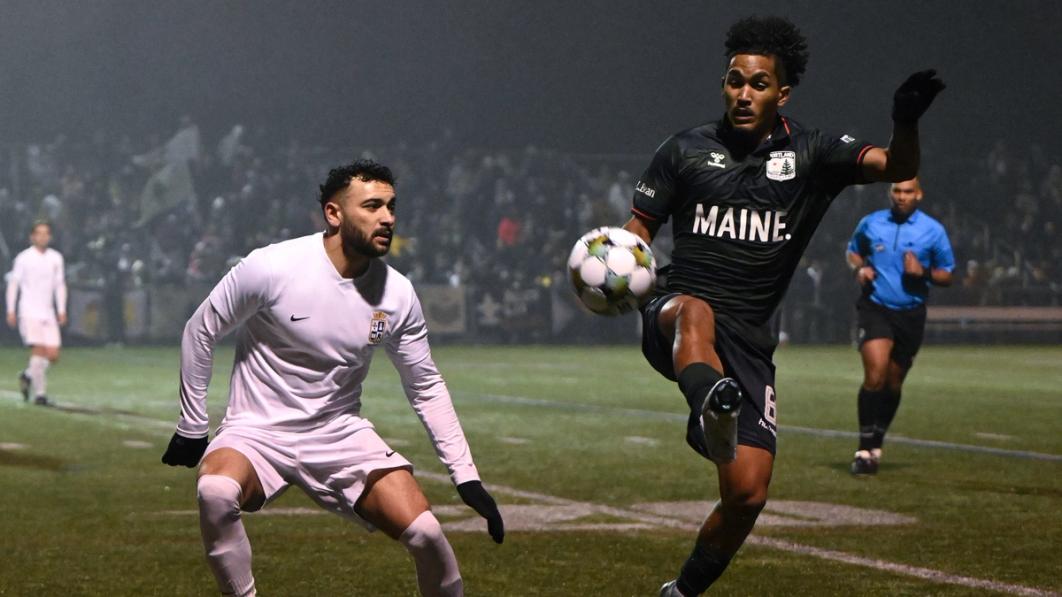
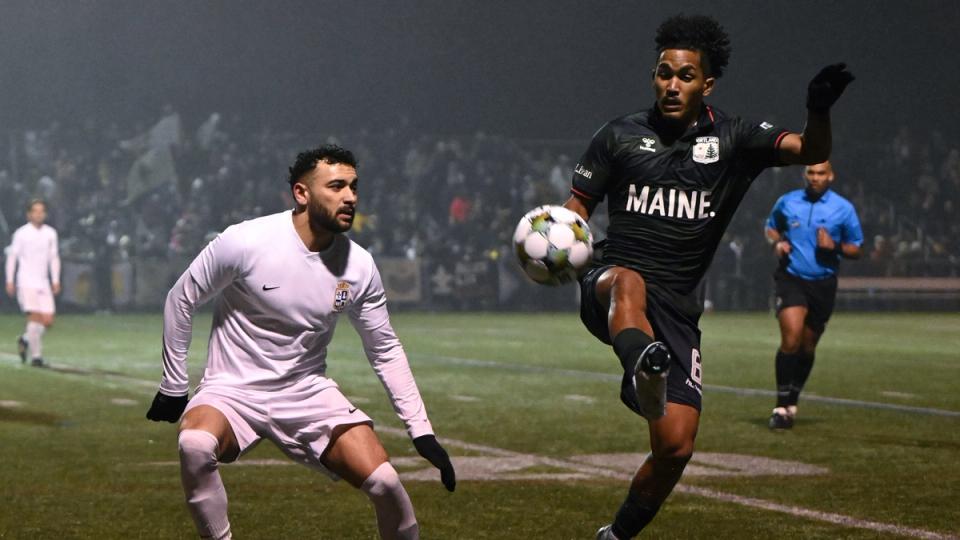


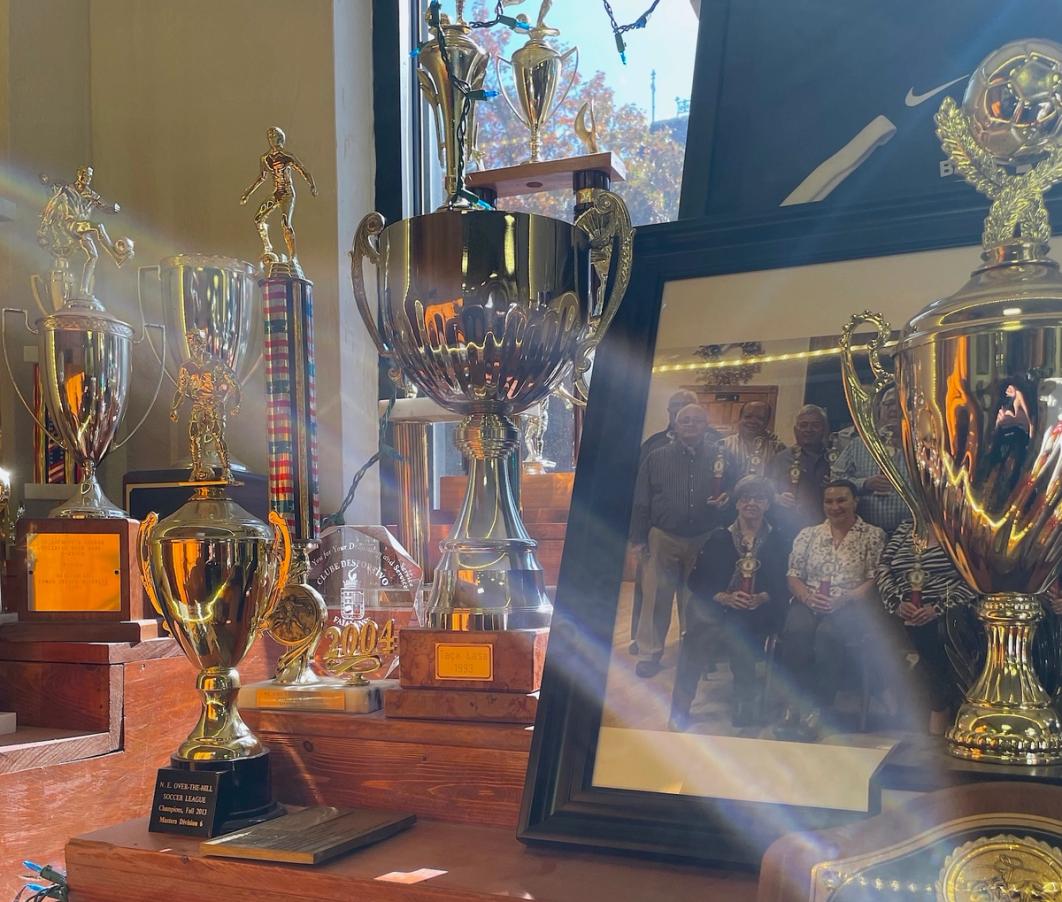
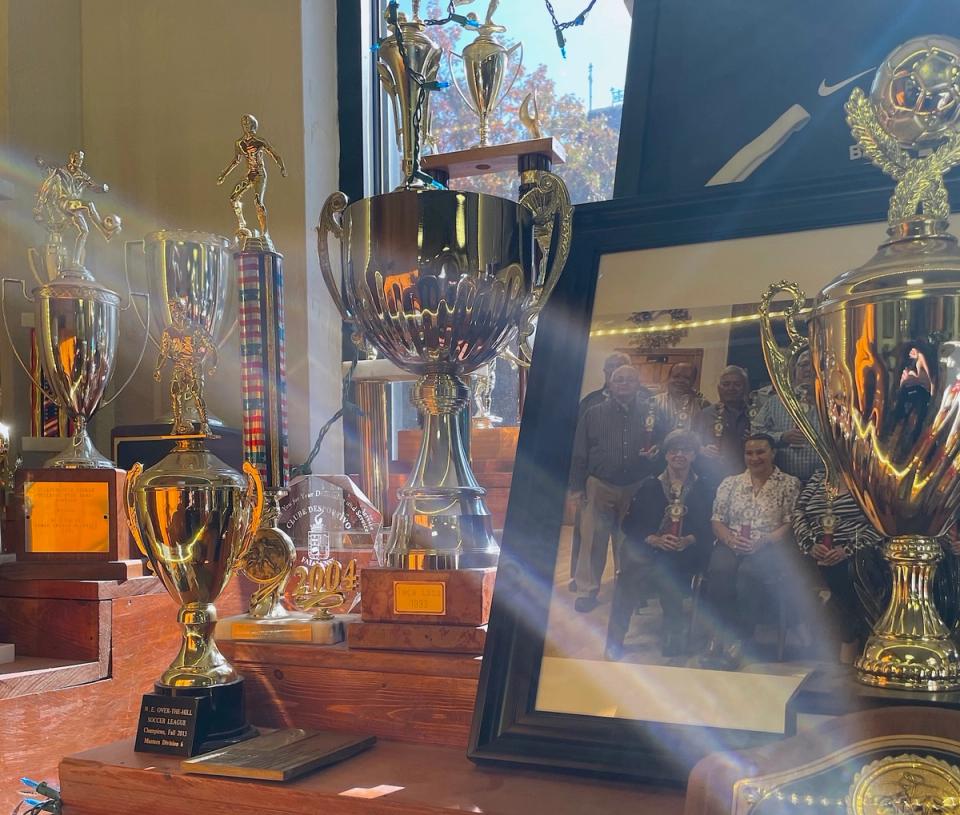
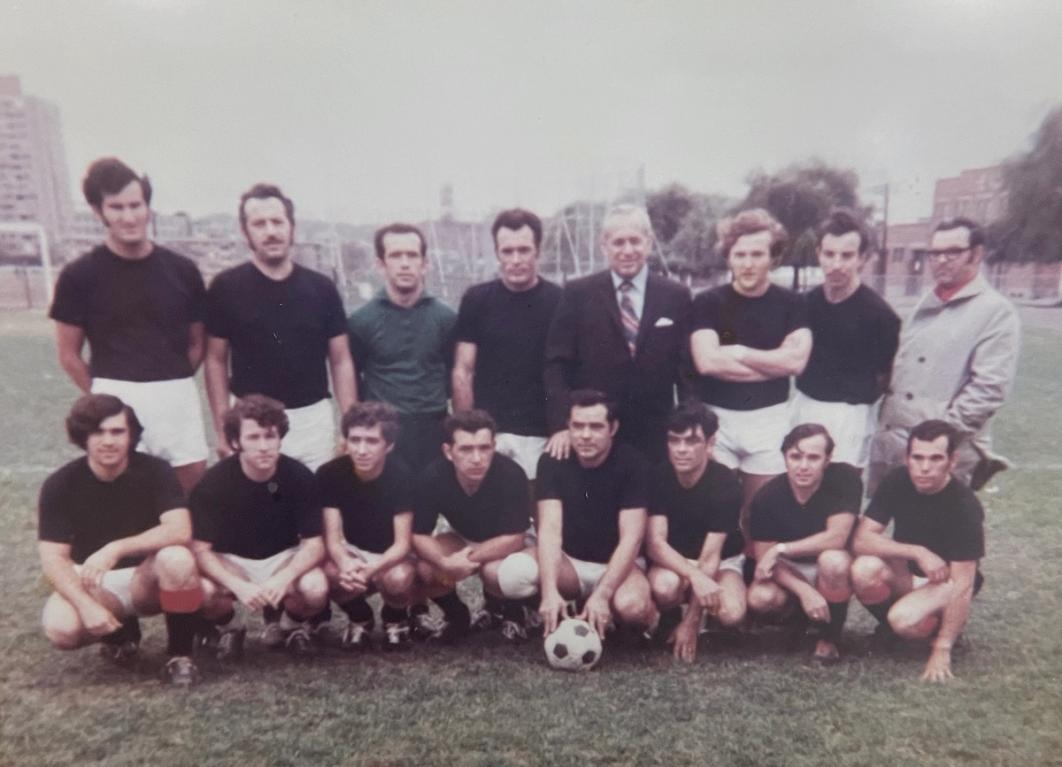
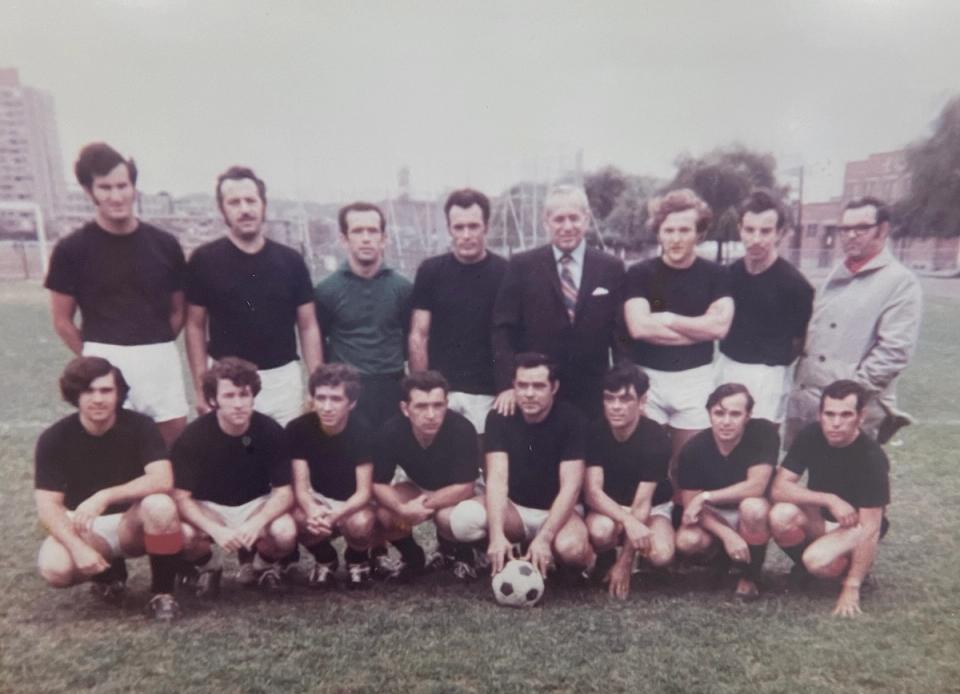
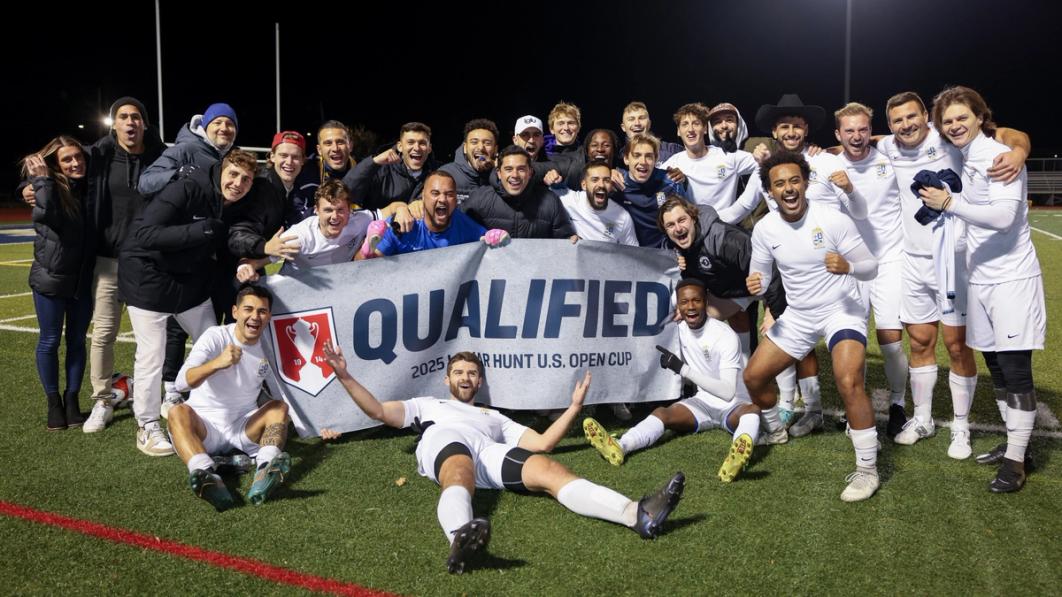
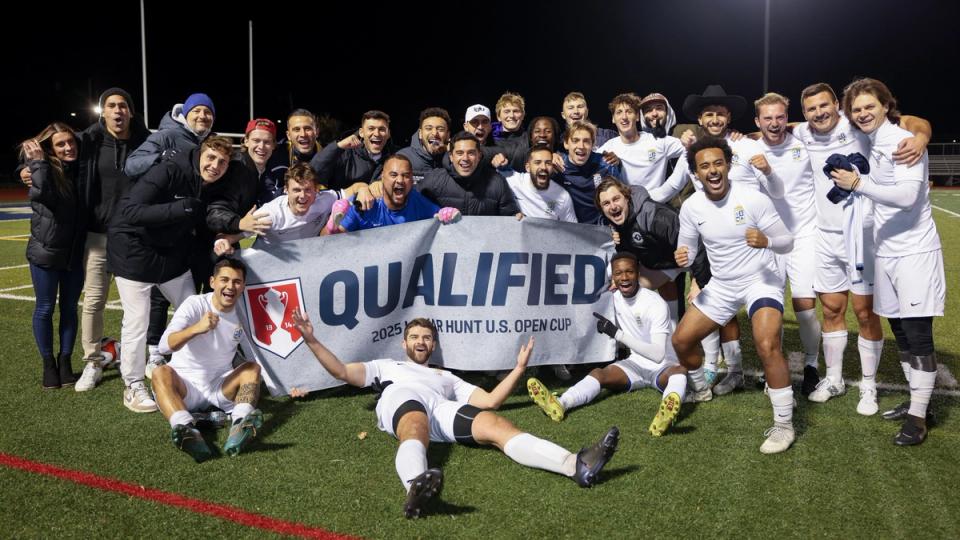
“In the beginning all the guys were from Faial, from that tiny Island,” said Luis Correia, showing off the club’s first trophy, won in 1973 and tarnished with age. It’s then that his nephew, Paul Correia, who runs today's first-team as player-coach, chimes in with pride: “Now we have players from ten different countries in the team – never in my wildest dreams did I think I’d be a part of something like this.”
Paul, 34, grew up around the club, going to holiday parties at the big function hall next door and playing foosball down in the basement. In those years, as the immigrants who helped build the neighborhood of East Cambridge moved away to the suburbs, soccer began to take a back seat.
“The teams up north [in and around Lowell, MA] were paying players 300 dollars a game, under the table, cash,” said Duarte about the years the club spent in the so-called LASA League – the powerful LUSO-American Soccer Association that dominated New England Soccer in the 1980s and 90s. “We couldn’t compete with that.”
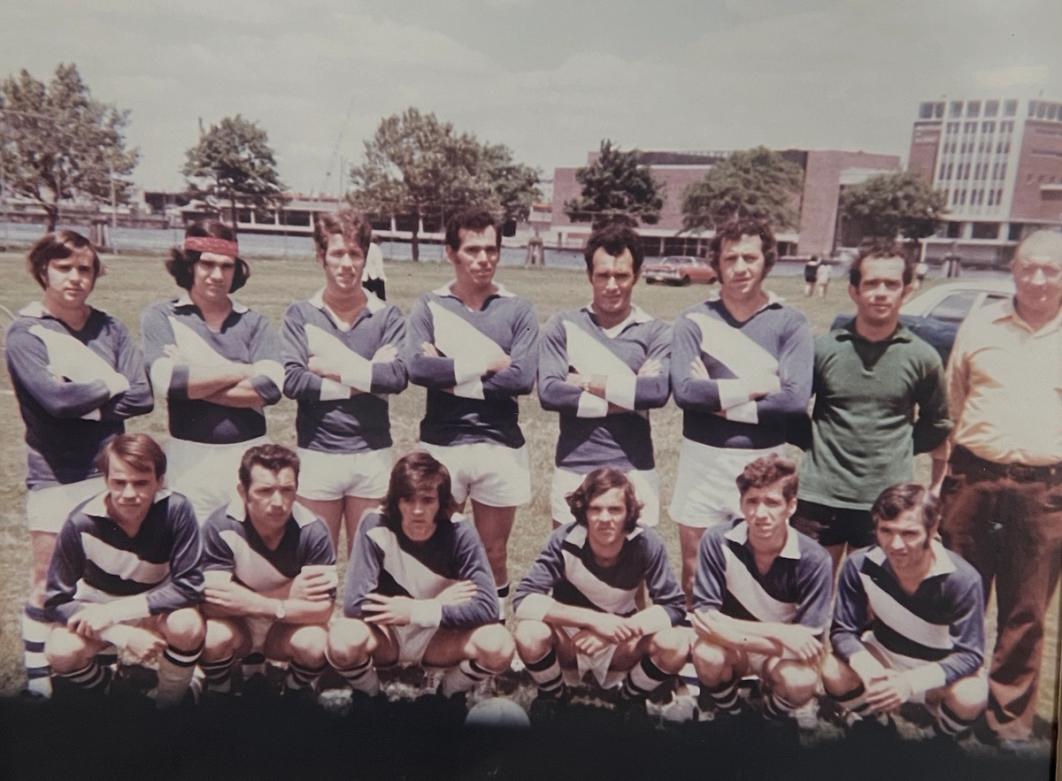
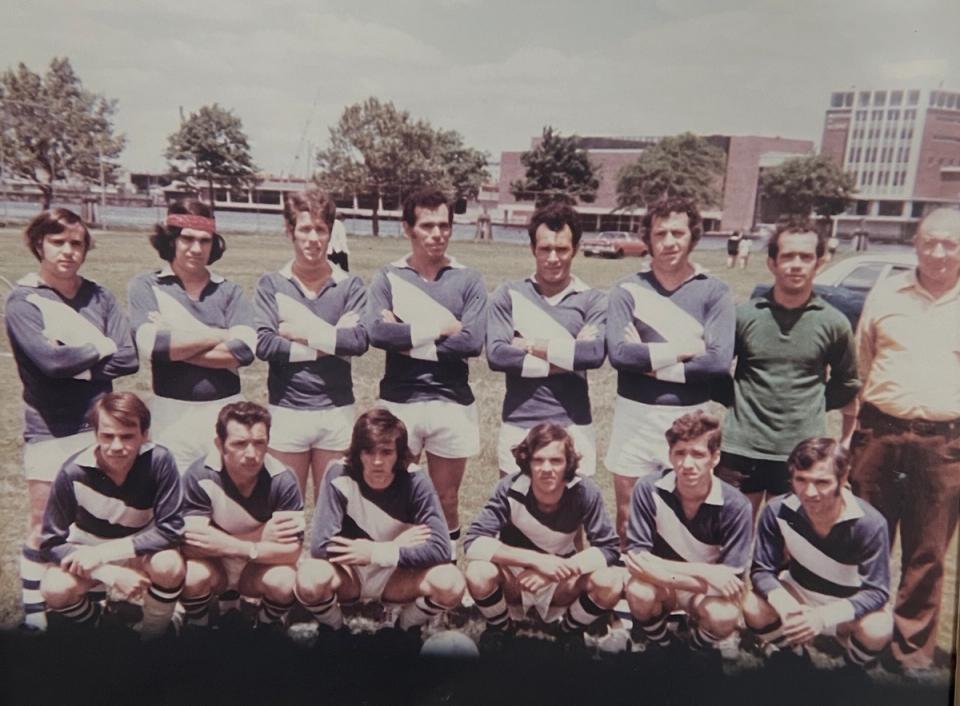
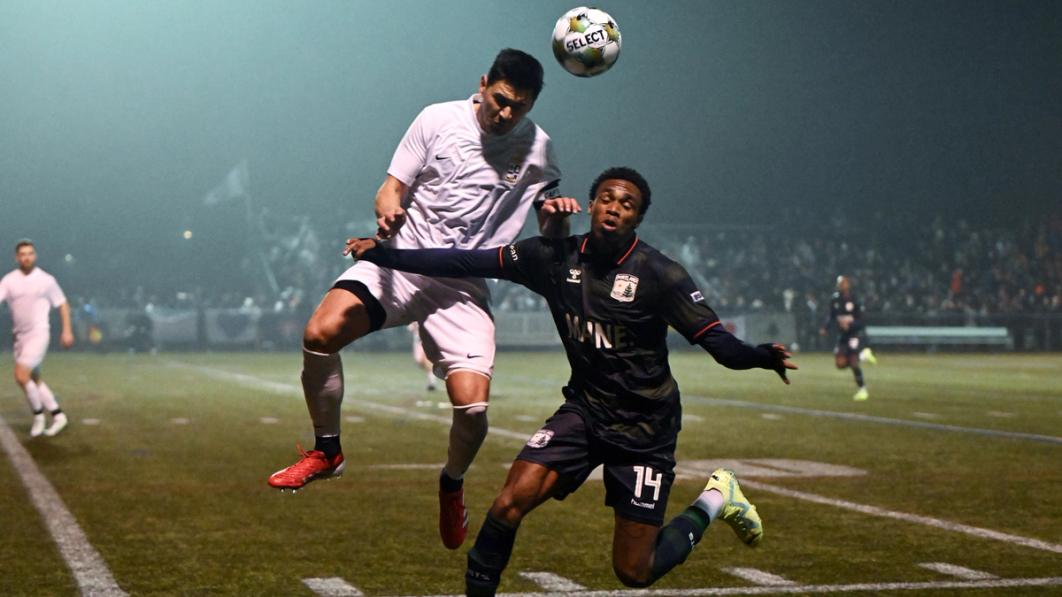
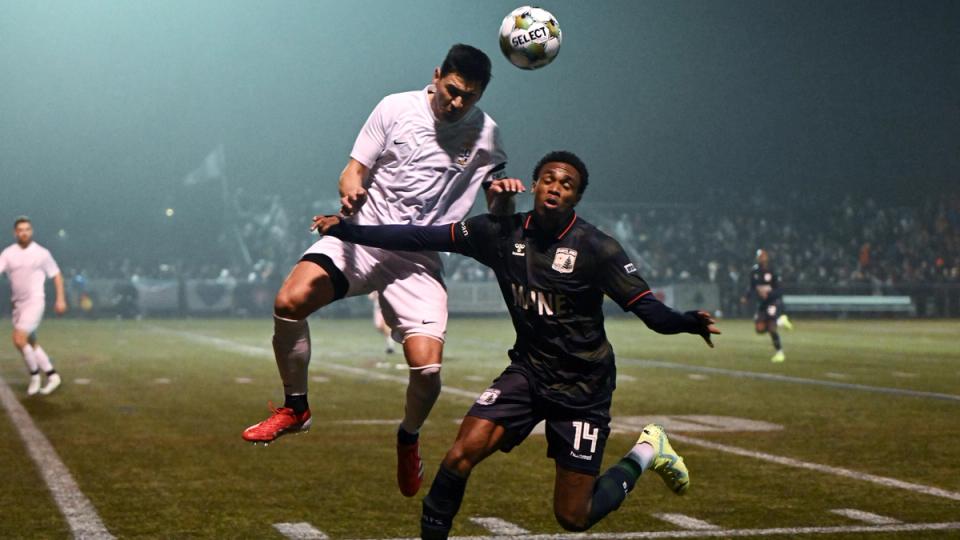
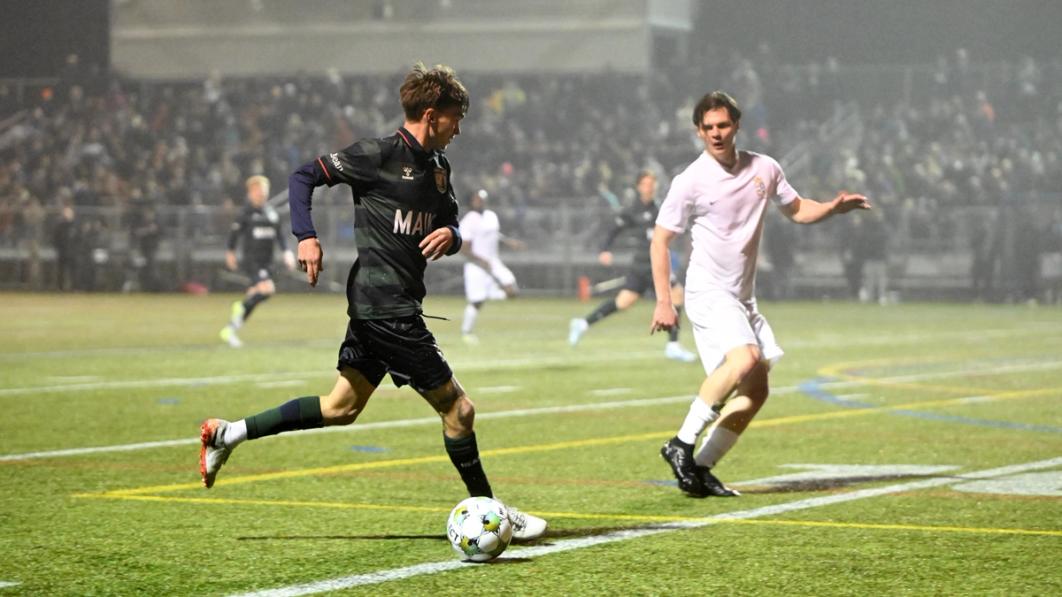
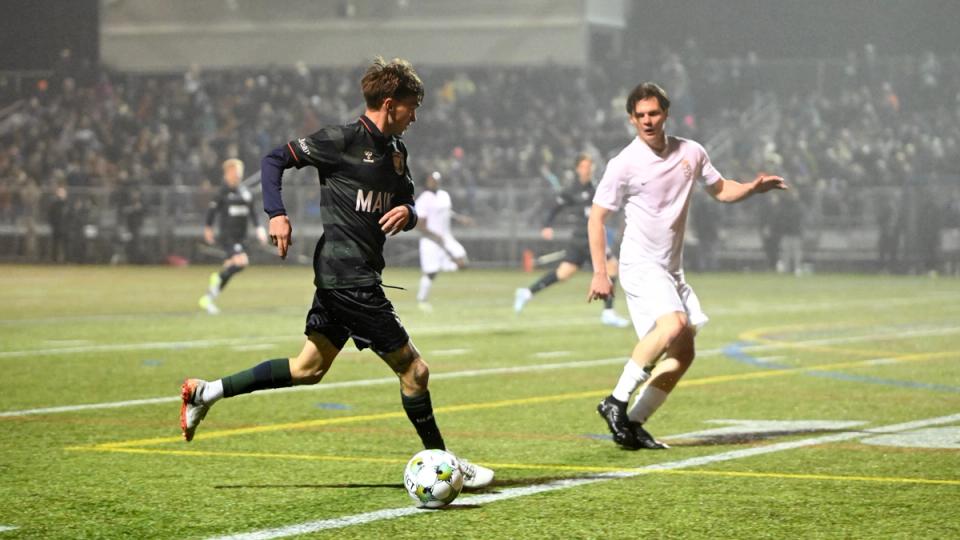
“It’s a family thing and these young guys are unique – really talented players and they’re still into it and playing just because they love it,” added Francisco, CD Faialense’s president and steward, looking at his son and the batch of talented and committed players he’s helped assemble.
A few old-timers are still at the bar when the night wraps up with flan and strong coffee – maybe a cognac or two. There’s one last look at the jumble of trophies in the front window on the way out. Among the keepsakes from years past, Paul Correia points to a dark blue shirt in a frame.
It’s one of the 2023 BSSL-winning jerseys, right there in the mix next to the old fading photos.
Someone has the idea to make a throwback shirt for next season. A tribute to the ones up on the wall with the diagonal sash, the white collar, worn by a team that played for this club before any of them were born. “We’re gonna’ do it,” said Paul, second-generation CD Faialense, pushing the door open to a Cambridge that’s always changing. “We’re definitely gonna’ do that.”
Jonah Fontela is editor-in-chief of usopencup.com. Follow him at @jonahfontela on X/Twitter.
Something blocks the view when you peek through the window at 1121 Cambridge Street.
When the door to the stucco-fronted building opens, a member going in or heading out, you’ll smell garlic, a waft of grilling octopus and huge slabs of prime beef. You’ll hear the tinkle of glasses and never-ending arguments in Portuguese and English. And if you’re waved inside Clube Desportivo Faialense, you’ll see right away what it was that blocked your view from the sidewalk.
Trophies. Several shelves and six decades worth.
“This club was founded in soccer,” said Francisco Correia, pulling up a chair. He’s the president of Clube Desportivo Faialense and a place of honor, at the head of a table below a wall of team photos spanning five decades, is reserved for him.
Suddenly we’re back in the summer of 1971. “There was a bunch of guys who used to kick the ball around for fun, so they decided to start a team,” said the club’s unofficial historian, 76-year-old Gabriel Duarte, who remembers those long-ago days. “That’s how it all started.”
The team’s first name was Faialense Sport Club and it was born on a bumpy field behind a school a few blocks from where we sit sipping Sagres Pilsner. The club’s first home was a former meat market, a place, as Duarte recalls, where “ the players could get together for food and a beer after the game.”
The club, in those early days, was made up only of guys from Faial – a 66 square-mile island in the Azores where a volcanic eruption in 1957 sent folks scrambling for safety. Nearly 4000 of them landed in Massachusetts, many in East Cambridge, adding to the previous surges of Portuguese immigration to the Bay State that began back when whaling ships still ruled the waves.
In 1984, the club scraped together the money to buy the building where we sit now, in the early days of 2025. In the intervening 40 or so years, the value of the property has skyrocketed. The Cambridge that existed in 1984 is a long-faded memory.
“It used to be all Portuguese here,” said the club’s vice president, Luis Correia [brother of the club’s president, Francisco] about a neighborhood where the constant thud of construction is the soundtrack of times changing. “It was Portuguese families from the Islands [Azores] out from Inman Square all the way through East Cambridge.”
CD Faialense is a piece of the past, but one with an eye on the future too. The group of young men gathered at the other end of the table is evidence of that.
“We have this place here and we can help build it back to what it was,” said Paul, who works in finance, running the team on the side. He’s the guiding light of a new generation of CD Faialense, and he makes sure everyone gets a few of the clams that arrive at the table in steaming mounds, drowning in white wine sauce and parsley. “We want it to be like it used to be.”
The CD Faialense team of today is more than a nostalgic labor of love for Paul Correia. With a pipeline of players from the best local college programs, the likes of UNH, UMass Lowell, URI and Harvard, they’re building a reputation as the cream of the crop of amateur men’s league soccer in Eastern Massachusetts.
A pair of first-place finishes in the Bay State Soccer League (BSSL) Division One in 2023 and 2024, by huge margins of 11 and 10 points respectively, is a good indication of what they’re up to. It’s a stratospheric bar they’ve set.
“We want to be the amateur team that breaks through,” Paul said of his side’s ambitions as they try to reach the Tournament Proper for the second time in a row, after a 1-0 win over Brockton FC United set up a Nov. 23 Fourth Rounder against New Hampshire's FC Lonestar GPSE on the road. “Every player on our roster right now is a former Division-One college player – a lot of top guys fresh out of that competitive environment.”
Lucas Rezende, like Paul and a core group of the team's old guard, played his college ball at Merrimack University. He’s the starting goalkeeper and handles much of the organizing end of things. That includes keeping tabs on players for weekend games and whittling a working roster from a squad of 40.
Rezende, 28 and recently married, uses the word “revolution” to describe the change in the team when a group of current young players began to coalesce around the clubhouse on Cambridge Street.
“It all started with Damian,” Rezende said, between bites of a huge steak smothered in garlic and topped with a fried egg. He gestures to Damian Attidore, who, at 25, isn’t far from his playing days at UMass Lowell – America East league mates of the recent NCAA Champions the University of Vermont Catamounts.
“It took me a year to get him in,” laughed Razende, shaking his fork at Attidore, who teaches English and coaches the freshman team at nearby Lincoln-Sudbury Regional High School. “He was playing hard-to-get and wouldn’t respond to my texts!”
“I was burnt out on playing,” smiled Attidore, an outstanding winger and now one of the first names on the team sheet who “shows up to everything” according to Razende. “I had a few buddies on the team and they kept bugging me and eventually they dragged me along.”
It’s something Paul Correia is justifiably proud of. You can see it on his face. Assembling a new generation of players, all taking the field under the banner of CD Faialense. Filing back to the club for a beer and a bite after the game. It’s a blending of old and new that’s rare.
“This is something you need time to build – it’s a kind of heritage that you can’t buy,” added Felipe Guimaraes from the far end of the table. He’s 31 now and has been with the team since 2013. He was there through the lean years when, playing under the name PAC Lawrence and Merrimack Valley United, the side bounced up and down the lower reaches of the BSSL.
“Now we have that pipeline and players start talking to their friends and bringing them in,” said Guimaraes, a civil engineer who works on fire-escape technology and commutes in from New Hampshire. “Before you know it we’ve got something really good.”
More than just mortar and brick, there’s an essence here at the club. There’s something magical about the building – the barroom and the people who’ve made it what it is. The big challenge for the team, outlined by Crema, Italy native Mirko Nufi, 28, who passes on the steak in favor of an excellent grilled octopus, is “getting a field in the city – or across the river in Boston – it’s impossible.”
“The dream is to have a field nearby,” said Paul Correia, hoping to move on, someday, from their current home field 15 miles up the North Shore. “That way things can be like they used to be – you play the game and all the guys come back here to hang out. When the young guys get here and spend some time, have some food, they always fall in love with the place.”